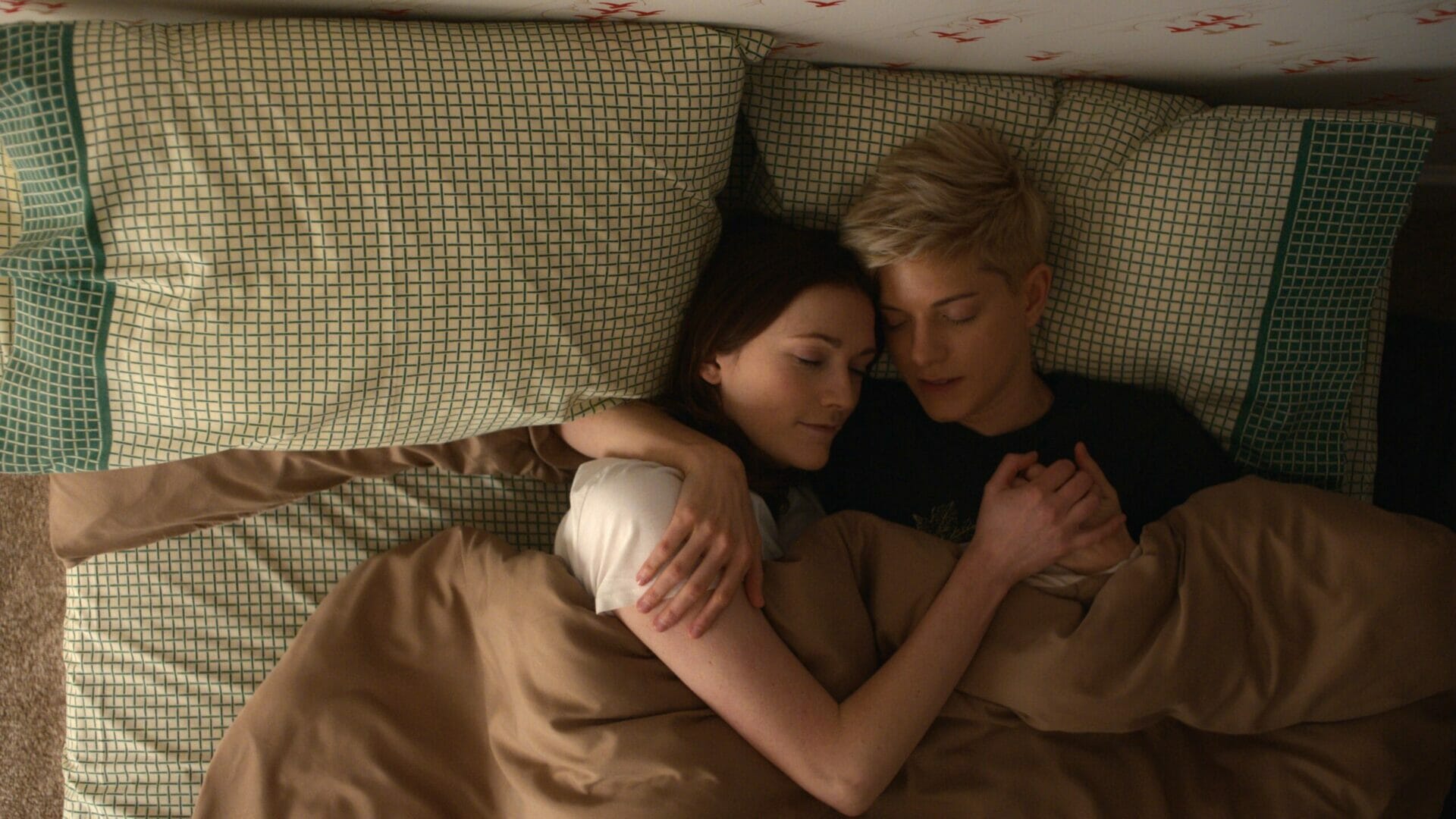
Feel Good | When feeling bad is easier
Showrunner
Country
Seasons
Runtime
Original language
Subgenre
Music by
Three main characters is all a TV show needs to keep the story rolling and make people and the critics fall in love with it. Feel Good is the perfect example of how little it takes to make something great out of bad, bad situations. Written by comedian Mae Martin and produced in 2020 by Objective Fiction, the show depicts addiction and relationships in a way nobody has ever done before.
A show both happy and sad
Feel Good is a semi-autobiographical romantic comedy-drama. With two seasons of six episodes each, the show premiered on March 18th, 2020. It was first released for UK television on Channel 4, with Netflix handling the international distribution.
As previously mentioned, the show uses comedy and a simple setting to keep viewers focused on many controversial and little-known themes. The plot starts with the perfect romance. In fact, the original title for the project was “Mae and George”, showing how central the love story was going to be.
Mae, played by Mae Martin as a fictionalized version of themselves, performs at a comedy club when she meets George (Charlotte Ritchie), a teacher from a very posh English family. They talk all night and fall in love right away, but every personal struggle they face on their own eventually resurfaces.
Mae is in fact a former drug addict, and drugs aren’t the only thing she seems to be addicted to. George becomes someone to be desperately dependent on, which will soon turn their fairytale-like love story into a nightmare, mostly because none of them seem to be a perfectly functional adult yet.
While George is trying to help Mae escape her past, encouraging her to join her old Narcotics Anonymous meetings, she is faced with rejection from her family and friends for being in a relationship with someone who identifies as a woman. Her missing coming out then becomes another obstacle for the pair.
The only other main character is Mae’s mother Linda, played by Friends’ Lisa Kudrow. Linda often comes into the picture as the voice of a brutal, ugly truth: Mae is addicted to being addicted, and needs to grow out of her past mistakes.
Being a mother who lives away from her unpredictable daughter, her harsh behavior is what puts the story into perspective.

Real, raw, and autobiographical
Despite adding many autobiographical aspects to the script, comedian Mae Martin co-created the show with their friend Joe Hampson who also wrote additional material for season 6 of the acclaimed British teen drama Skins.
Similarities between Feel Good and other well-known shows are evident in terms of tragic situations and recurring themes such as drug usage, addiction, sex, and gender. Skins or HBO Euphoria is a great example in terms of what is raw, cruel, and actual for most people.
In such a harsh setting, nothing works better than comedy to look at life and how insane it may appear to be. Dialogues and even characters are crafted according to one particular type of comedy: stand-up comedy, a form of humor that is rough, relatable, and as close to the audience as it is to the comic.
But stand-up needs an audience, for it is primarily an evolution of live comedy theater. Viewers are those who put meaning to jokes and bits, and adding such a complex structure to a TV show is not easy.
Great comedy stories often come from theater. Phoebe Waller-Bridge, screenwriter and actress, brought her one-woman show to TV and made it into the hit show Fleabag, another crude depiction of life and love. Just like that, Mae Martin brought her dry, intimate, and cathartic humor to the screen with Feel Good, teaching once again how comedy is the perfect tool to tell profound and traumatic stories without disempowering them.
Niche quality, fresh tomatoes
Feel Good reveals to the audience to be way more profound than just a comedy show. With topics such as gender nonconformity, homosexuality and coming out, drug addiction and recovery, and post-traumatic stress disorder, the show has many things to discuss. Comedy comes in handy to make the show so light most viewers learn about trauma and how to overcome it without even noticing.
Nevertheless, the public is aware of Feel Good’s power, and critics noticed too. In fact, the show has a 100% approval rating on Rotten Tomatoes for seasons 1 and 2, coming from critics and viewers.
And this is not the only achievement showing how well-received Feel Good was.
In 2021 Mae Martin and Joe Hampson won the RTS Programme Award for Best Writer – Comedy and the Writers’ Guild of Great Britain for Best TV Situation Comedy, among other awards and nominations.
What Feel Good depicts is the absurd rawness of life, through ups and downs, through feeling good and feeling bad. It does it all through comedy to help people laugh about the ugly face of love and life. Because sometimes, feeling bad is easier, but feeling good is just a laugh away.
Tag
Buy a ☕ for Hypercritic









